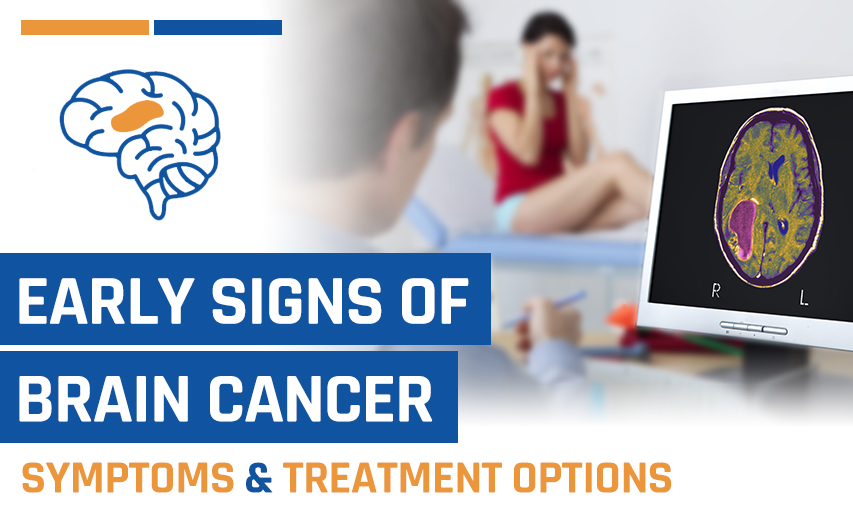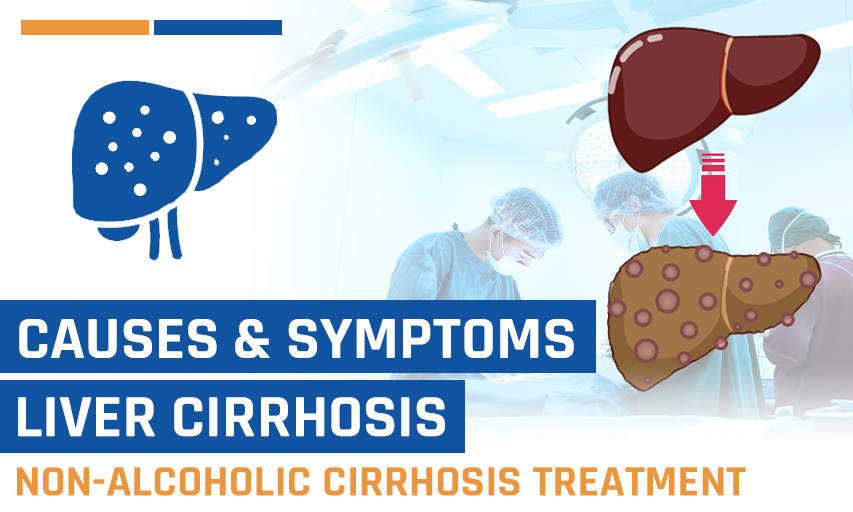7 Early Signs of Brain Cancer You Definitely Shouldn’t Ignore
Brain cancer is a serious and life-threatening condition that affects thousands of people worldwide. Studies estimate the incidence rate of brain tumors and tumors of the central nervous system as 4.3 in 100,000 Africans. The country has seen an increasing number of brain tumor cases, therefore encouraging many of the natives to seek cost-effective and quality treatment outside Africa. With the richness of expertise in neurosurgery and cost-effective treatment options, India has become a leading country for medical care for African patients.
Recognising the early signs of brain cancer can really make a tremendous difference in the brain treatment outcome. So often, the brain cancer symptoms are slight at the beginning and may take time to become noticeable. Early diagnosing of this condition becomes imperative. The sooner you get the brain cancer operation, the better your quality of life will be. Therefore, let’s learn the 7 early signs of brain cancer that you definitely shouldn’t ignore and everything there is to know about this condition.
What are the Early Signs of Brain Cancer?
Here are the early signs of brain cancer which you should not overlook:
1. A Seizure or Muscle Spasm
One of the earliest and most alarming signs of brain cancer can be unexplained seizures or muscle spasms. A brain tumor may disrupt normal electrical activity in the brain and lead to involuntary muscle movements. These can range from mild twitching to full-body convulsions. If you or someone you know experiences a seizure without a known cause, it’s important to get immediate medical attention.
2. Persistent Headache, Nausea, and Vomiting
Frequent headaches that do not respond to over-the-counter medication—especially those that worsen in the morning or change with body position—could be an early sign of a brain tumor. If headaches are accompanied by nausea and vomiting, it may signal increased intracranial pressure. These symptoms should not be ignored and require prompt medical evaluation.
3. Numbness, Weakness, or Tingling on One Side
As a brain tumor grows, it may interfere with nerve pathways, leading to numbness, weakness, or tingling, typically on one side of the body. Difficulty lifting limbs, carrying objects, or a general loss of sensation could indicate impaired neural communication and may be associated with a brain lesion.
4. Changes in Vision
Blurred vision, double vision, or sudden loss of sight in one or both eyes could be indicative of brain cancer. Such symptoms are caused by the presence of tumors that press into the optic nerve or other parts of the brain responsible for vision. If these concerns are unexplained and interfere with the reappearance of any visual defect, consult an ophthalmologist or neurologist immediately.
5. Difficulty with Balance or Coordination
A tumour affecting the cerebellum (the little region of the brain that controls movement and balance) can result in dizziness, difficulty walking, and poor coordination. If you frequently experience unexplained stumbling, loss of balance, or dizziness, it could be one of the many warning signs of brain cancer.
6. Speech Difficulty
Not being able to form words, slurred speech, or incoherent sentences can be an indication of some brain area dysfunction due to brain cancer. It's critical to get a quick evaluation done by a specialist without any delay if you or someone you know see such signs of brain cancer.
7. Changes in Personality or Memory
Brain cancer can create changes in mood and behaviour, which can significantly affect cognition. This change can present itself in the form of irritability, unexplained mood swings, memory loss, confusion, or lack of focus. If you and your loved one have experienced such changes for which there is no obvious reason, it will be a good idea to look at a medical evaluation.
How to Know If You Have Brain Cancer?
There are several ways in which you can understand you have brain cancer, such as:
■ Pay attention to new or worsening symptoms
Signs of brain cancer are different for different people. New and worsening symptoms, especially if they develop suddenly or without explanation, should be the focus.
■ Keep a Watch List of Your Symptoms
A daily symptom diary would be most helpful with respect to sudden and dramatic changes that need to be put into perspective. Headaches, dizziness, speech alterations, or any other warning signs also need close monitoring.
■ Make An Appointment with Your Doctor
If you think you have brain cancer, call a neurologist right away to make an appointment. This early intervention can rule out other alternatives as causes of brain cancer and set a course of action.
■ Diagnoses of Brain Cancer
If physical exams, MRI scans, and CT scans show an abnormal mass in the brain, steps are needed for diagnoses of brain cancer for investigation of such masses further. These imaging tests help to determine whether a tumour is present, its size, and its location.
■ Biopsy
If an imaging test shows a mass that looks suspicious, the following step is a biopsy to find out whether the mass is benign or malignant. A biopsy is performed to harvest tissue samples that will be sent to a laboratory for testing analysis.
What Are the Options for Brain Cancer Treatment in India?
India has come out as the leading country for getting advanced and affordable brain cancer treatment, attracting patients from across the world. With state-of-the-art hospitals, experienced neurosurgeons, and all-inclusive brain cancer operation plans, India offers a wide range of treatment options that are tailored to each patient’s condition and stage of cancer.
They include:
■ Brain Cancer Surgery:
Surgery for brain cancer is often the first treatment approach, especially when the tumour is localised and accessible. India’s top hospitals use advanced techniques like microsurgery, neuronavigation, and robotically assisted procedures to remove brain tumours with high precision and minimal damage to surrounding tissue.
■ Radiation Therapy:
Radiation therapy is used to target and destroy cancer cells that cannot be surgically removed. Techniques like stereotactic radiosurgery, including the Gamma Knife and CyberKnife, allow for highly focused radiation treatment, making it the best option for tumours in sensitive or deep brain areas.
■ Chemotherapy:
Chemotherapy is administered to slow or stop the growth of tumour cells and is often used in combination with surgery or radiation. In India, oncologists customise drug regimens based on the tumor type and patient tolerance, using both oral and intravenous medications.
■ Targeted Therapy:
Targeted therapy is a newer and more personalised treatment method that attacks specific cancer-causing genes or proteins. This minimises damage to healthy cells and is increasingly available in India for certain brain tumor types, based on molecular profiling.
■ Immunotherapy:
Immunotherapy is a new and emerging treatment method that uses the body's immune system to fight brain cancer. Though still under clinical evaluation for many brain tumor types, it is being introduced at leading Indian cancer centers, especially for complex or treatment-resistant cases.
When to See a Doctor for Brain Cancer?
Detecting the signs of brain cancer at an early stage significantly enhances the efficacy of treatment. If you notice any symptoms, such as terrible headaches, seizures, problems with vision, or memory loss, do not overlook them. Going early to a physician or health centre can help with early detection, better treatment, better prognosis, and assured chances of survival.
Due to the availability of world-class neurosurgery facilities in India at a significantly lower cost compared to Europe or the US, African patients often travel there for brain cancer treatments.
Why is Early Detection of Brain Cancer Symptoms Important?
Brain cancer is a serious and often lethal condition. However, early detection can significantly improve brain cancer surgery outcomes and increase the chances of survival. That’s why it’s important to pay close attention to the first signs of brain cancer.
If you experience persistent symptoms such as seizures, nausea, ongoing headaches, balance issues, speech difficulties, or vision changes, do not ignore them. There may be early indicators of a brain tumour, and immediate medical evaluation can help in getting early detection and treatment.
Prompt diagnosis opens the door to more effective brain cancer treatment options, from surgical intervention and radiation therapy to advanced personalised care. Early-stage treatment is often less complex and more successful in managing or even removing the tumour.
India has become a favourite destination for getting high-quality and cost-effective treatment for brain cancer, especially for patients from African countries. With world-class neurosurgeons, advanced technology, and patient-centric care, India offers renewed hope for those facing serious brain tumour diagnoses.
If you or a loved one is experiencing any signs of brain cancer, don’t delay—schedule a health checkup immediately. Early action could make all the difference.




















Be First To Comment
Leave a Comment